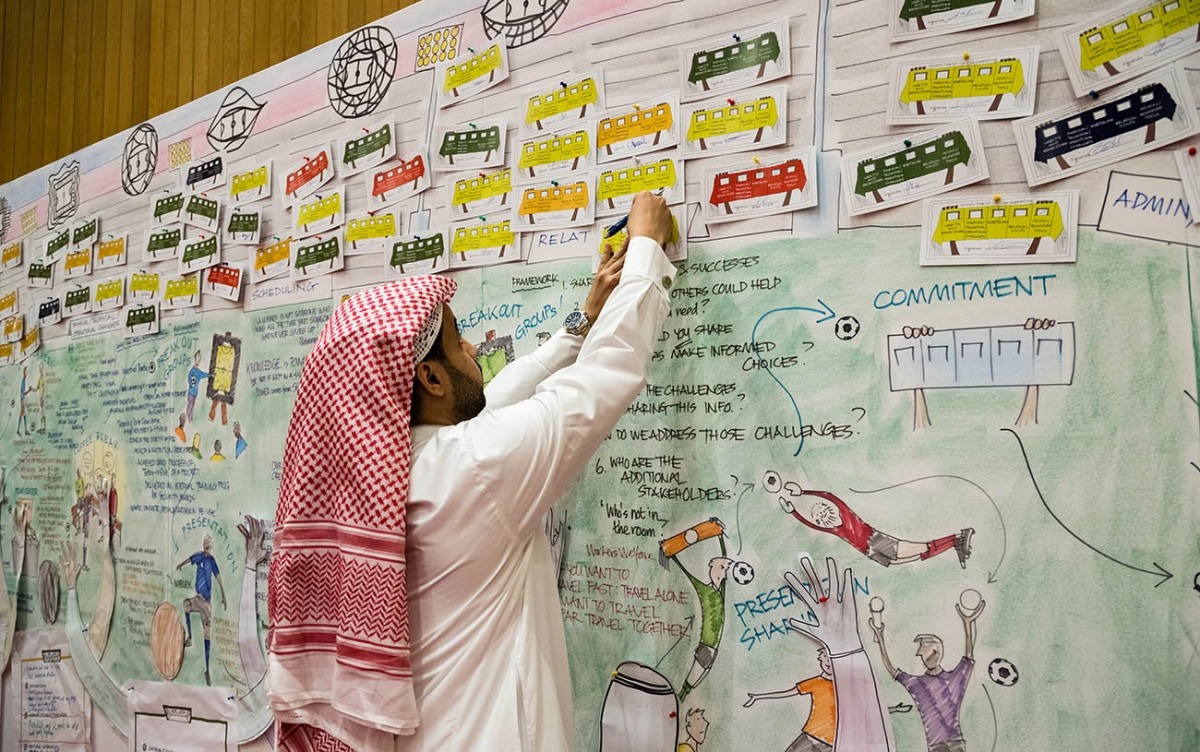.jpg)
_1-itok=GFMKQ6A9.jpg)
2017 has been a landmark year for the field of behavioural sciences, both globally and here in Qatar.
On the international stage, Richard Thaler was awarded the Nobel Memorial Prize in Economic Sciences for his contribution to behavioural economics. This provided a major boost to our field, which is expanding at a rapid rate.
Here in the Middle East, the Supreme Committee for Delivery & Legacy (SC) – the 2022 FIFA World Cup™ organising body – launched the Qatar Behavioural Insights Unit (QBIU), which I have the honour to lead. QBIU is the region's first behavioural insights initiative and is actively conducting policy experiments to support the SC and other bodies across the country, in line with Qatar National Vision 2030.
Over the past 12 months we have conducted experiments related to education, workers' welfare, environmental sustainability and healthy lifestyles. We have also gained considerable exposure, not least during the World Innovation Summit for Education (WISE), which took place at Qatar National Convention Centre in November. QBIU was also name-checked in a recent article by Cass Sunstein – a behavioural economics pioneer who helped launch the first nudge unit within President Barack Obama's administration.
When our project kicked off we had to beg people to volunteer their challenges for experiments, but now we are inundated with ideas and proposals. It's a nice problem to have. Attending WISE and taking part in three key sessions really helped to spread the message about behavioural economics to a new audience. We have found there is genuine enthusiasm for behavioural science in this region. There's clearly a desire to be innovative and keep up with growing trends.
At present, we're focused on supporting the SC as it strives to deliver the biggest event in Qatar's history. Earlier in the year we helped the Workers' Welfare Department improve the way it collects complaints from workers engaged on project sites – an initiative which not only improved the quality of complaints, but also increased the quantity by more than 30%. We also helped Generation Amazingincrease PE teachers' participation in its training sessions by 33%. Randomised controlled tests were used for both projects.
Recently we participated in the SC's inaugural 'Knowledge Transfer Day', which was attended by colleagues from the HSSE Division and Workers' Welfare Department. Our task now is to encourage attendees to stick to the pledges they made during the event in order to improve communication and collaboration.
In addition to the above we have organised a number of micro-trials related to sustainability and healthy eating. Many are very simple, such as using posters to encourage people to pick a healthy food option or bright stickers to convince people to take the stairs rather than the elevator. We are currently reviewing the results of these trials.
Our challenge in 2018 is to keep the momentum going. While continuing to work closely with the SC, we will endeavour to work alongside organisations across Qatar and the region. We are very keen to share the benefits of behavioural economics.
QBIU is another example of how the 2022 FIFA World Cup™ is having a positive impact on Qatar and the region. We're very proud to be contributing to the success of the event and – more importantly – the legacy it leaves for Qatar, the region and the world.

